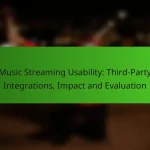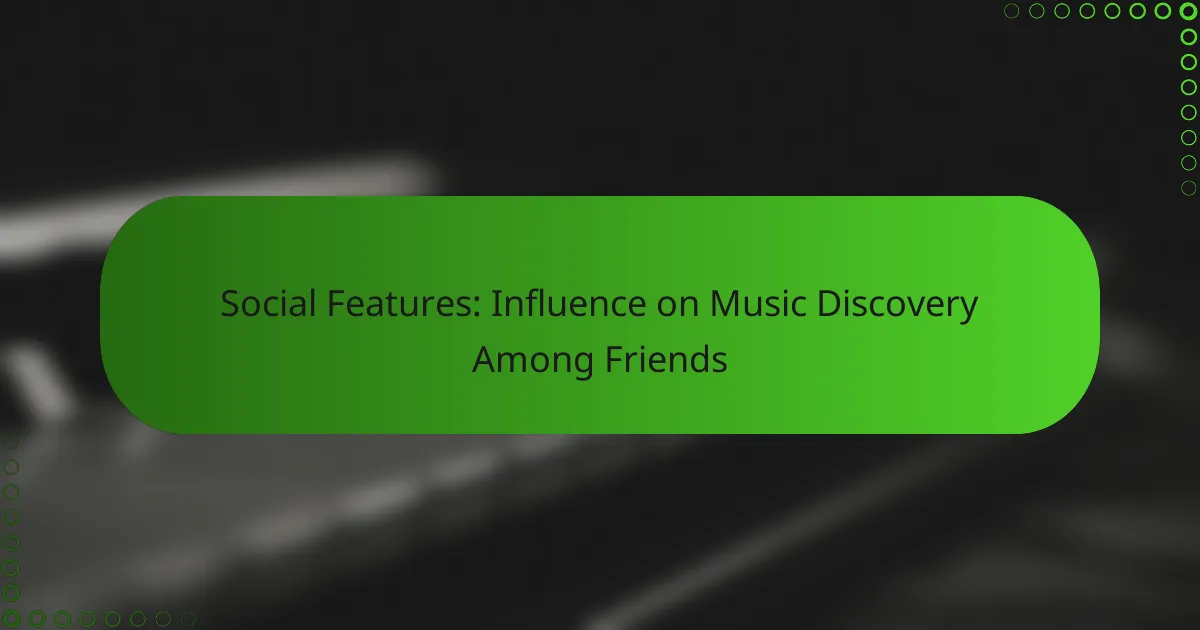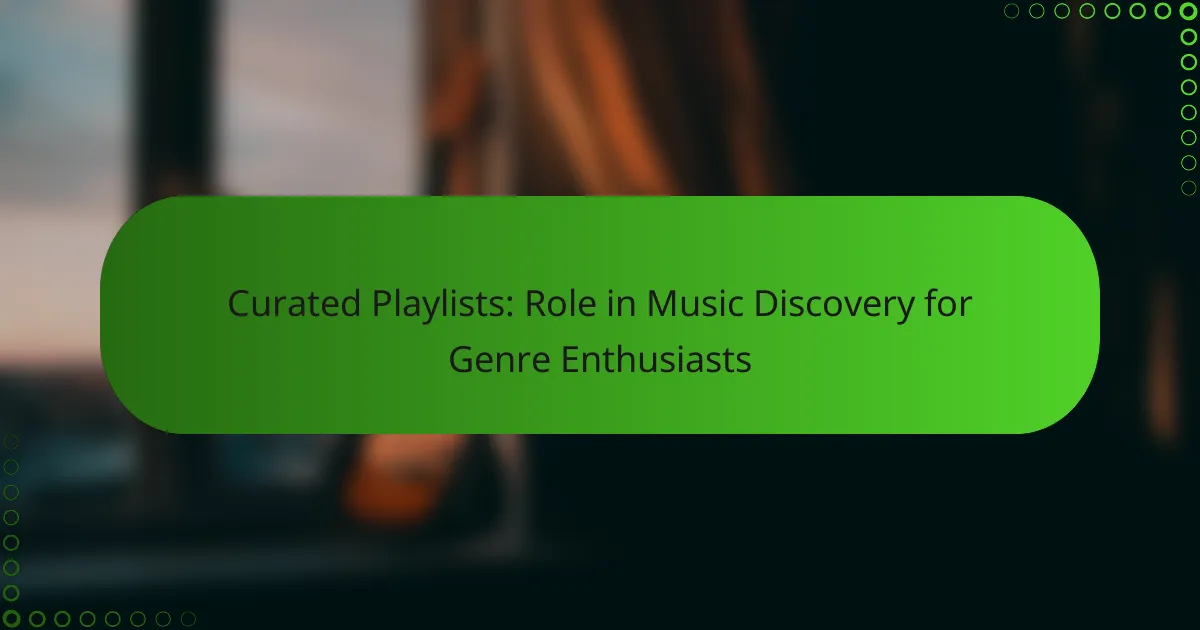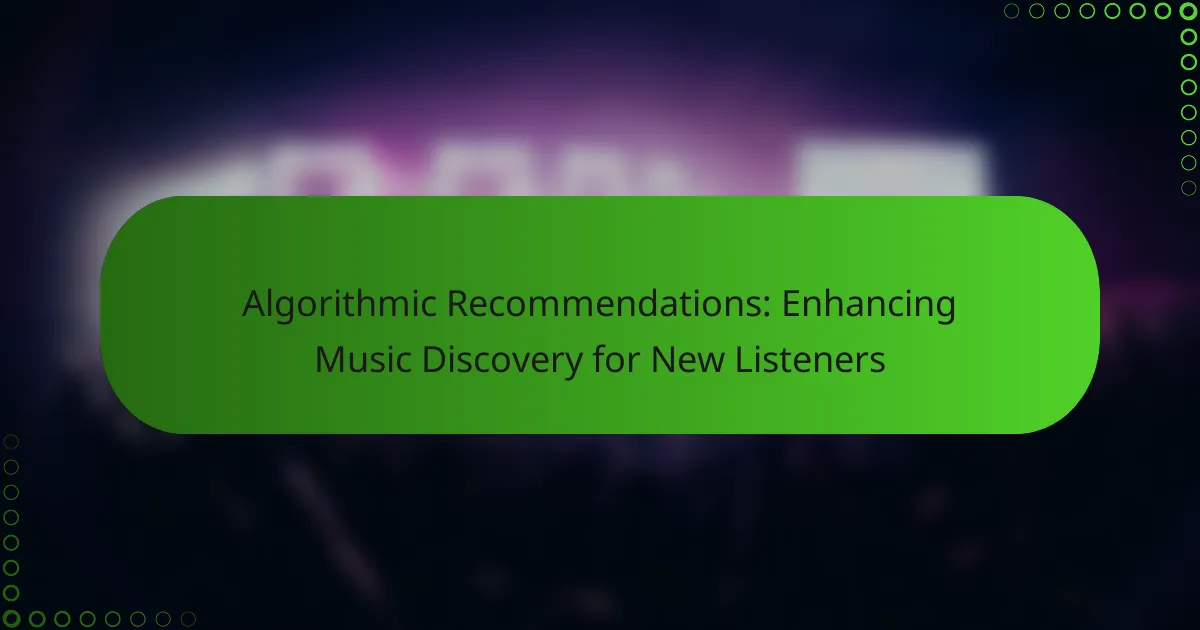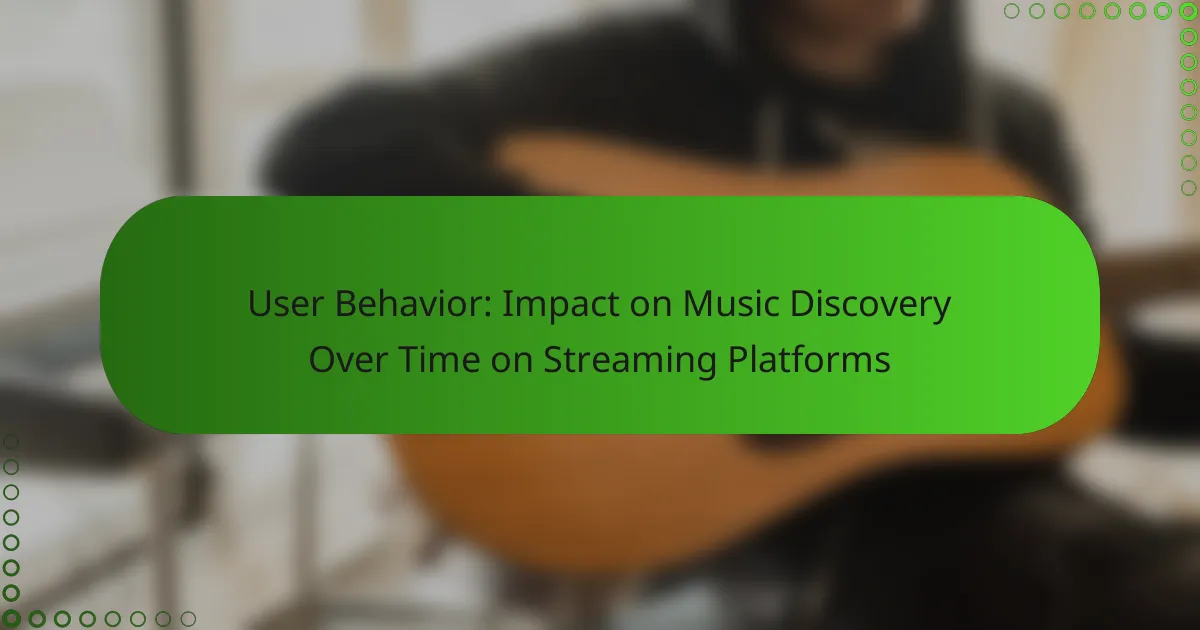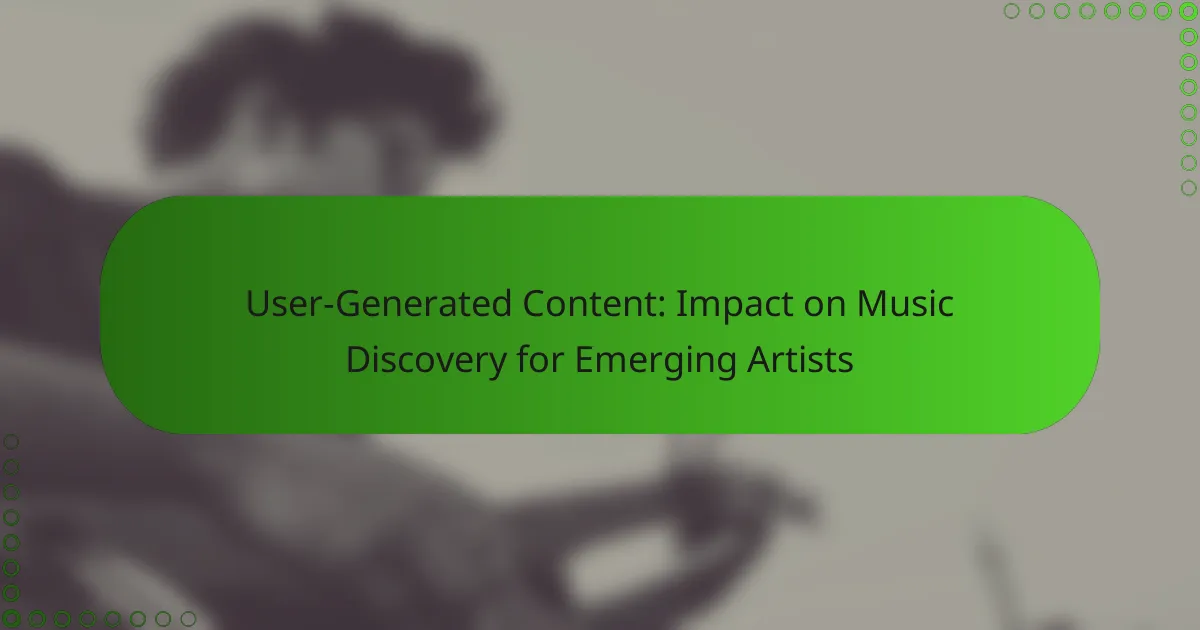Social features play a crucial role in enhancing music discovery among friends by enabling seamless sharing and collaboration of music content. Platforms like Instagram, Facebook, and TikTok facilitate the exchange of playlists and recommendations, creating a vibrant environment for exploring new artists and genres. User-generated playlists further enrich this experience, reflecting the tastes of friends and communities, making it easier for listeners to connect with music that resonates with them.
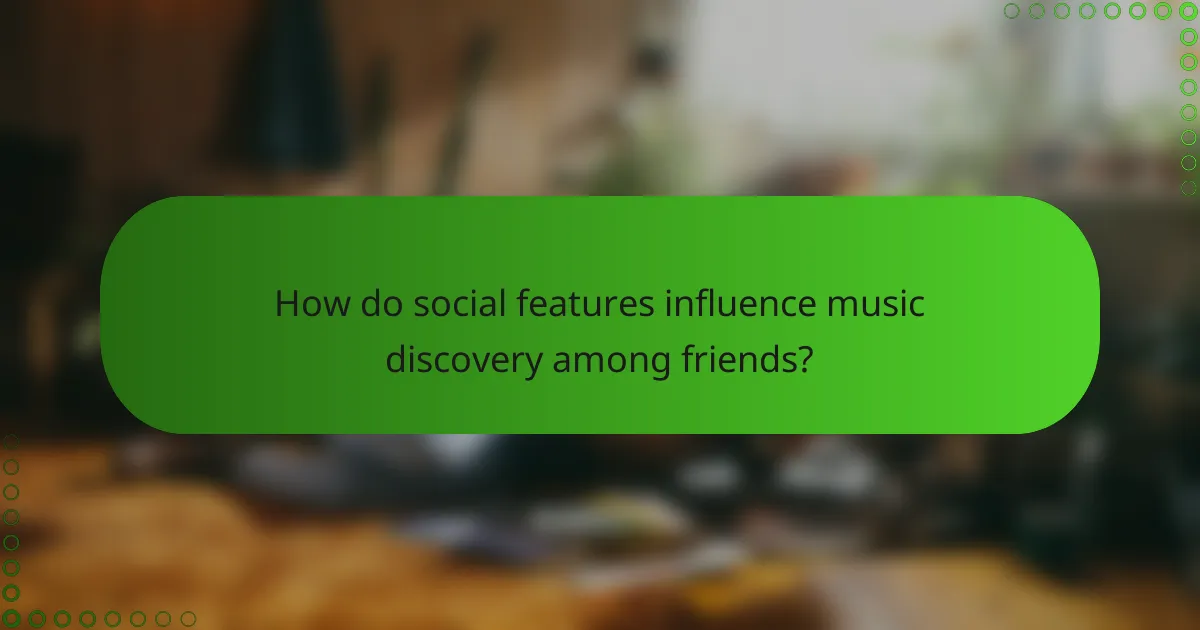
How do social features influence music discovery among friends?
Social features significantly enhance music discovery among friends by facilitating the sharing and collaboration of music content. These features create a dynamic environment where users can easily exchange playlists, collaborate on music selections, and receive recommendations from their social circles.
Increased sharing of playlists
The sharing of playlists among friends has become a common practice, allowing users to discover new music through trusted sources. When friends share their curated playlists, it often leads to a more personalized listening experience, as users are more likely to enjoy music that resonates with their social connections.
Platforms like Spotify and Apple Music enable users to share playlists directly, making it easy to explore new genres or artists that friends are currently enjoying. This sharing can happen through direct links, social media posts, or within the app itself, fostering a sense of community around music.
Collaborative playlists on Spotify
Collaborative playlists on Spotify allow multiple users to contribute to a single playlist, enhancing the music discovery process. Friends can add their favorite tracks, creating a diverse collection that reflects the group’s tastes and preferences.
This feature not only encourages interaction but also exposes users to music they might not have encountered otherwise. For example, a group of friends planning a road trip can create a collaborative playlist that includes everyone’s favorite songs, ensuring a fun and varied soundtrack for the journey.
Social media recommendations
Social media platforms play a crucial role in music discovery through recommendations shared by friends. Users often post about new songs, albums, or artists they enjoy, which can spark interest among their followers and lead to further exploration.
Engaging with music-related content on platforms like Instagram or Twitter can help users stay updated on trends and new releases. Additionally, features like “stories” or “posts” allow users to share snippets of songs, making it easy for friends to check out the full tracks on streaming services.
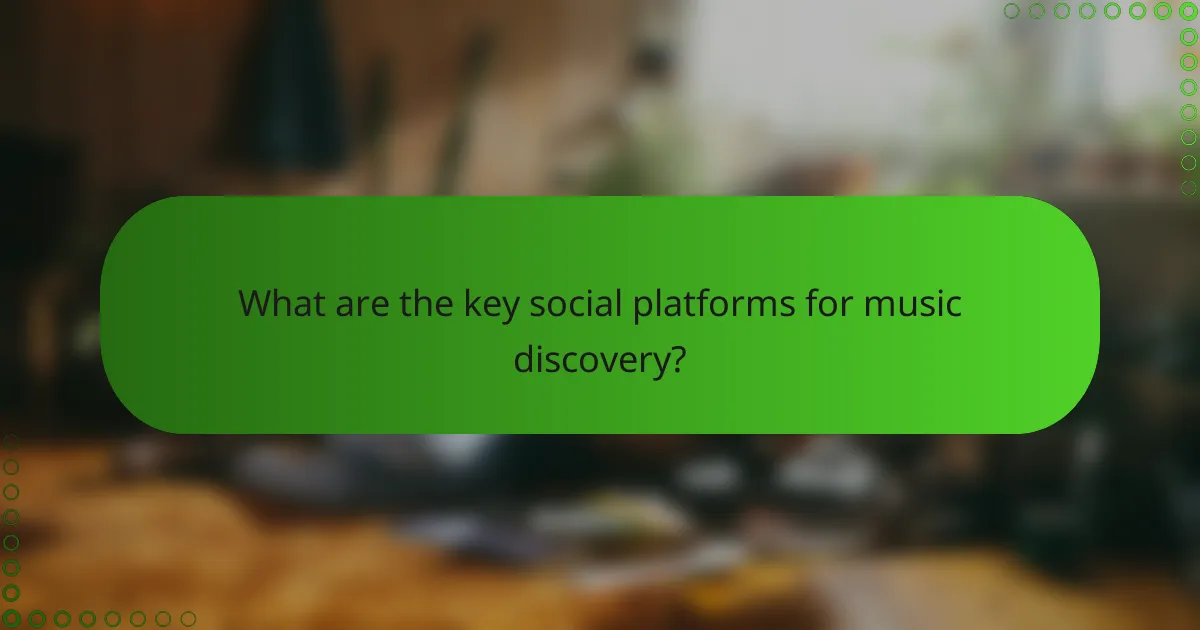
What are the key social platforms for music discovery?
Key social platforms for music discovery include Instagram, Facebook, and TikTok. Each platform offers unique features that facilitate sharing and discovering new music among friends.
Instagram’s music sharing features
Instagram allows users to share music through Stories, Reels, and posts, making it easy to showcase favorite tracks. Users can add music stickers to their Stories, enabling followers to listen to snippets directly. This feature encourages engagement and can lead to increased interest in specific songs or artists.
To maximize music discovery on Instagram, consider tagging artists or using relevant hashtags. This can help your posts reach a wider audience, increasing the chances that friends will discover new music through your shares.
Facebook music groups
Facebook music groups serve as community hubs where users can share and discuss music. These groups often focus on specific genres or themes, allowing members to discover tracks they might not encounter otherwise. Participating in discussions and sharing personal favorites can enhance the music discovery experience.
To effectively use Facebook music groups, engage regularly by posting recommendations and responding to others’ suggestions. This interaction fosters a sense of community and can lead to discovering hidden gems in the music world.
TikTok viral music trends
TikTok is known for its ability to make songs go viral, often through short video clips that feature catchy tunes. Users frequently create challenges or trends that encourage others to use specific songs, leading to widespread exposure. This platform has become a significant driver of music discovery, especially among younger audiences.
To leverage TikTok for music discovery, keep an eye on trending sounds and participate in challenges. Engaging with popular music trends can help you stay updated on what’s new and exciting in the music scene.
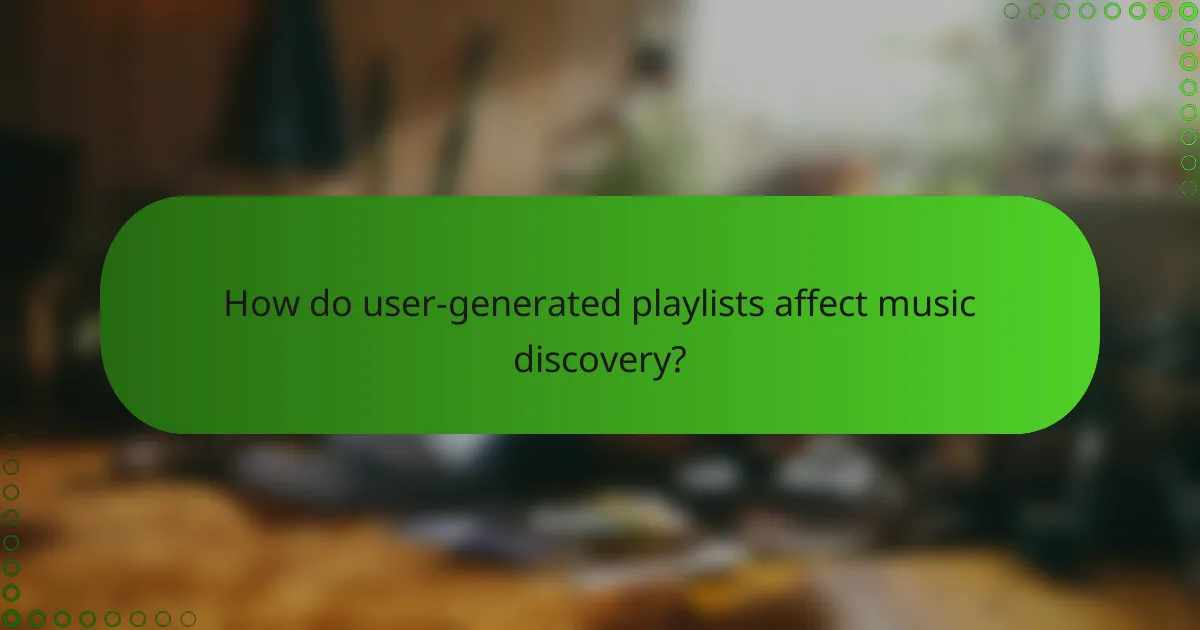
How do user-generated playlists affect music discovery?
User-generated playlists significantly enhance music discovery by allowing listeners to explore curated selections based on personal tastes and social connections. These playlists often reflect the preferences of friends and communities, making it easier to find new artists and genres that resonate with individual listeners.
Curated playlists by friends
Curated playlists created by friends serve as a personalized gateway to new music. When friends share their favorite tracks, it fosters a sense of trust and connection, encouraging listeners to explore unfamiliar songs. This social aspect can lead to discovering niche genres or emerging artists that might not be highlighted in mainstream media.
For effective music discovery, consider creating themed playlists based on moods, activities, or events. This approach not only makes sharing more engaging but also helps friends connect over shared experiences and musical tastes.
Impact of user reviews on platforms
User reviews on music platforms play a crucial role in shaping music discovery. Positive feedback can elevate lesser-known tracks, while constructive criticism can guide listeners toward higher-quality content. Reviews often highlight specific elements of a song, such as lyrics or production quality, which can influence a listener’s decision to explore further.
To maximize the benefits of user reviews, engage with platforms that allow for detailed feedback and community interaction. Look for trends in reviews to identify popular tracks or albums, and consider participating in discussions to share your insights and discover new music through others’ recommendations.
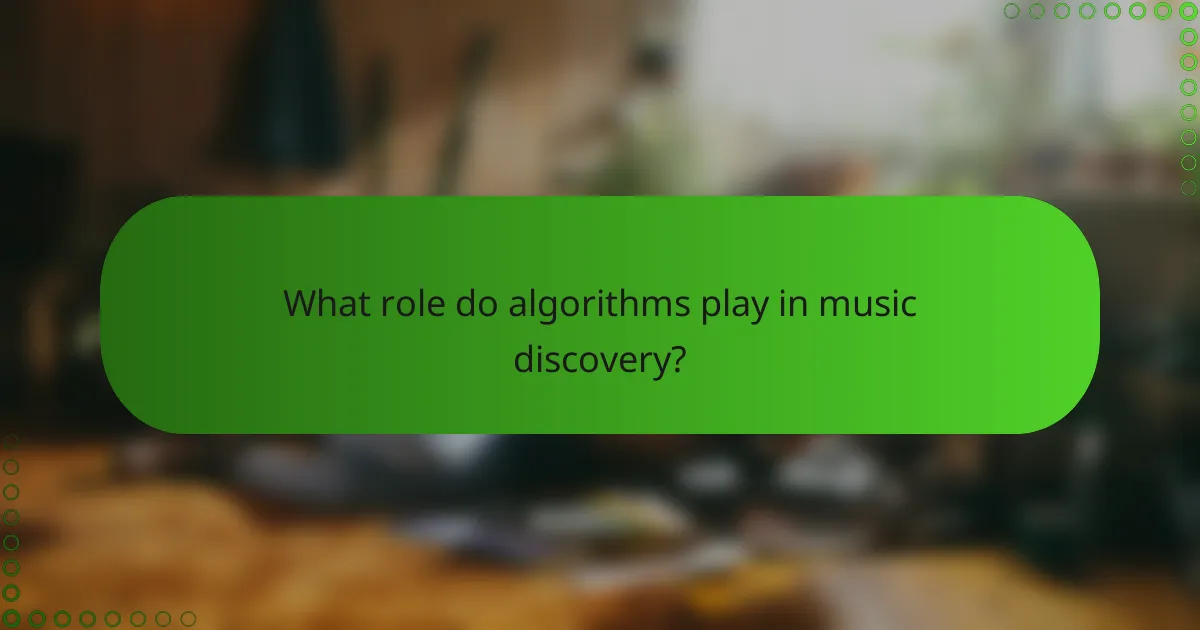
What role do algorithms play in music discovery?
Algorithms significantly enhance music discovery by analyzing user preferences and behaviors to suggest tailored content. They process vast amounts of data to identify patterns, enabling platforms to recommend songs, artists, and playlists that align with individual tastes.
Personalized recommendations on Apple Music
Apple Music utilizes algorithms to generate personalized recommendations based on listening history, liked songs, and user-created playlists. The service analyzes these factors to curate a “For You” section that includes tailored playlists and album suggestions.
To maximize the effectiveness of these recommendations, users should regularly update their preferences by liking or disliking songs. This feedback loop helps the algorithm refine its suggestions, ensuring a more enjoyable listening experience.
Algorithmic playlists on YouTube Music
YouTube Music features algorithmic playlists such as “Discover Mix” and “Your Mix,” which are designed to introduce users to new tracks based on their viewing and listening habits. These playlists are updated weekly, incorporating fresh content that aligns with user interests.
Users can enhance their experience by engaging with the platform—watching music videos, liking tracks, and creating playlists. This interaction signals to the algorithm what types of music resonate most, leading to more accurate and satisfying recommendations.
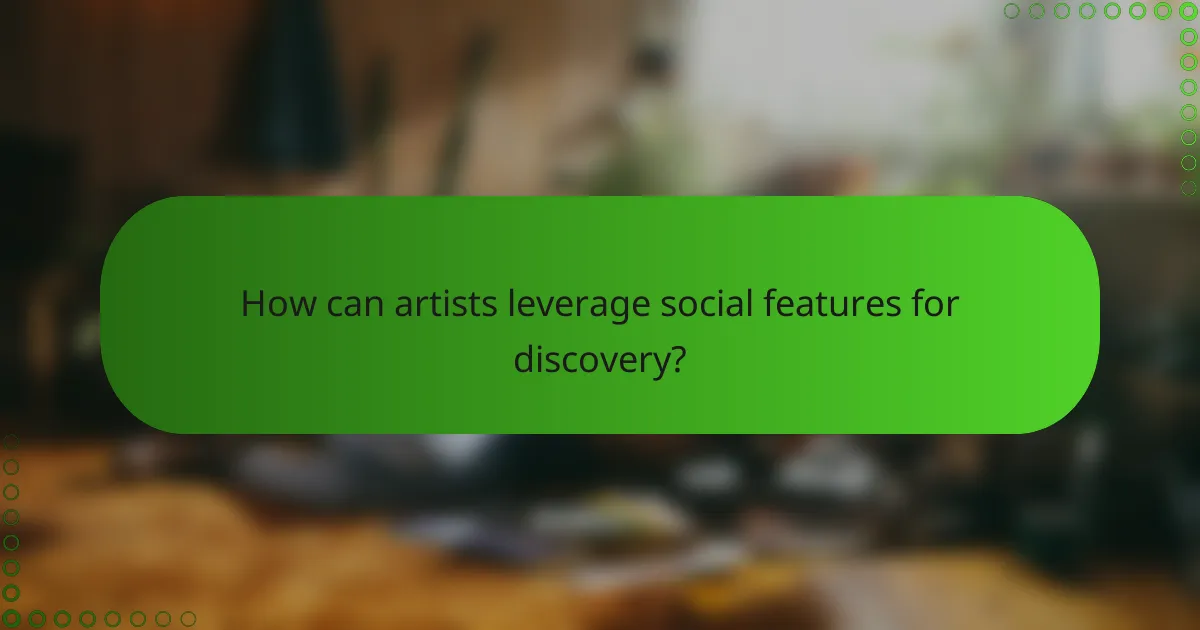
How can artists leverage social features for discovery?
Artists can effectively leverage social features to enhance music discovery by actively engaging with their audience and creating shareable content. Utilizing platforms where fans interact can significantly increase visibility and foster a loyal community around their music.
Engaging with fans on social media
Engaging with fans on social media is crucial for artists looking to boost their music discovery. Regularly posting updates, behind-the-scenes content, and personal stories can create a deeper connection with followers. Artists should respond to comments and messages to foster a sense of community and encourage fans to share their music.
Utilizing interactive features like polls, Q&A sessions, and live streams can further enhance engagement. For instance, hosting a live listening party for a new release can generate excitement and prompt fans to share the experience, increasing reach.
Utilizing TikTok for viral challenges
TikTok has emerged as a powerful platform for music discovery, with viral challenges often propelling songs to mainstream success. Artists can create catchy challenges that encourage users to incorporate their music into dance routines or creative content. This not only promotes the song but also engages a wider audience.
To maximize impact, artists should collaborate with popular TikTok influencers who can help spread their challenge to a larger following. Keeping challenges simple and fun increases the likelihood of participation, which can lead to organic growth in streams and visibility.
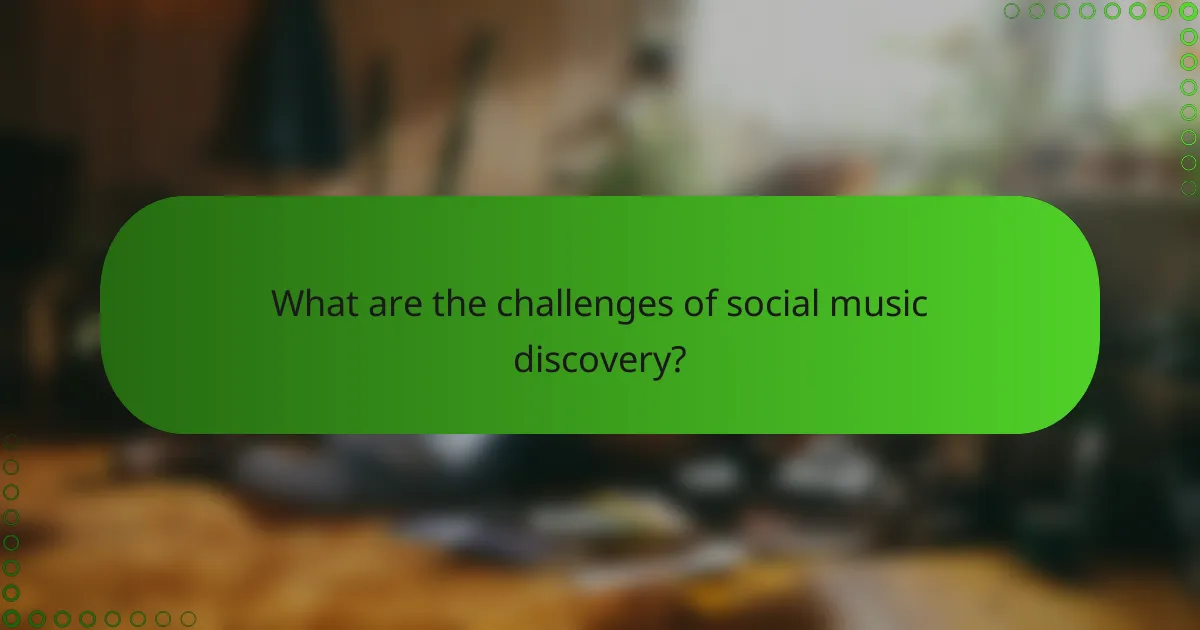
What are the challenges of social music discovery?
Social music discovery faces several challenges, primarily due to the vast amount of information available and the varying quality of user-generated content. These factors can complicate the process of finding new music that resonates with individual tastes.
Information overload from multiple sources
With numerous platforms offering music recommendations, users often experience information overload. This can lead to difficulty in discerning which suggestions are genuinely relevant or appealing. For instance, a user might receive recommendations from friends, algorithms, and social media, all at once, creating a confusing landscape.
To manage this overload, users can prioritize their sources. Focusing on a select few trusted platforms or friends can streamline the discovery process. Additionally, setting specific criteria for what type of music to explore can help filter out irrelevant suggestions.
Quality control of user-generated content
The quality of user-generated content varies widely, which can affect the reliability of music recommendations. While some users provide insightful reviews and playlists, others may share less thoughtful or biased opinions. This inconsistency can mislead listeners seeking new music.
To navigate this challenge, users should consider the credibility of the sources they follow. Engaging with users who have a proven track record of good recommendations or curating playlists based on collective ratings can enhance the quality of discovered music. Regularly updating and refining one’s network can also help maintain a high standard of content quality.
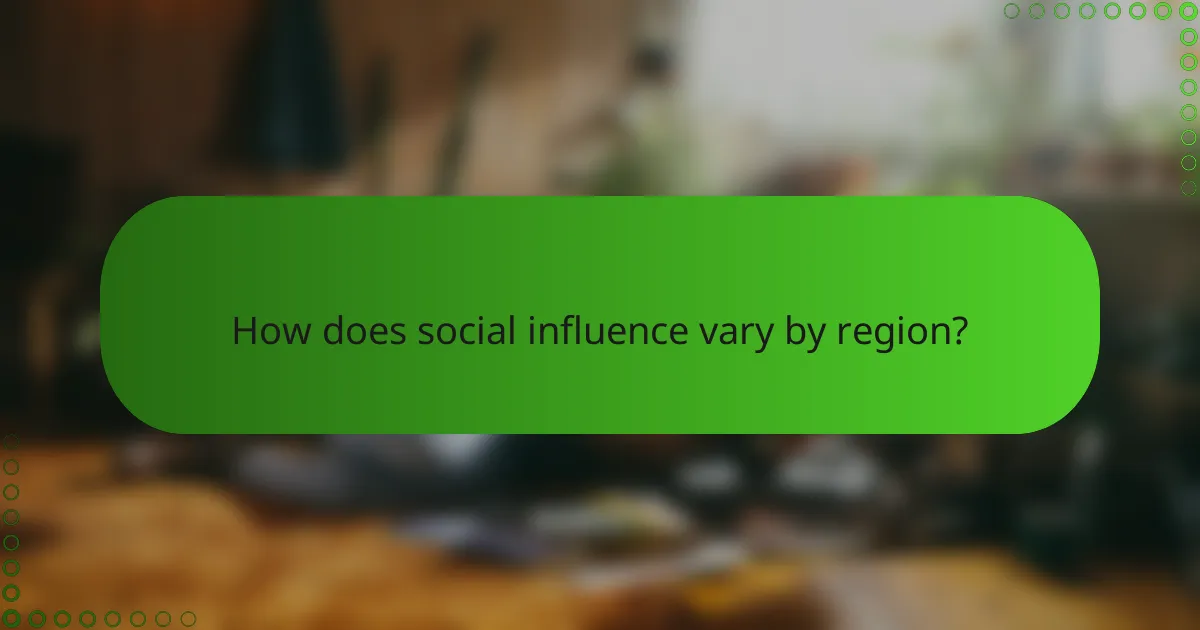
How does social influence vary by region?
Social influence on music discovery varies significantly by region, shaped by cultural preferences, technological access, and social interactions. In some areas, local trends dominate, while in others, global influences play a larger role in shaping music tastes.
Differences in music trends across the US
In the United States, music trends can differ dramatically from one region to another. For instance, hip-hop and R&B are particularly popular in urban areas like New York and Los Angeles, while country music thrives in the South and Midwest. These regional preferences often influence how friends share and discover new music.
Social media platforms and streaming services also play a role in these regional differences. For example, playlists curated for specific cities may highlight local artists, encouraging users to explore music that resonates with their community.
Global music discovery patterns
Globally, music discovery is increasingly influenced by social networks and streaming platforms that transcend geographical boundaries. Users from different countries often share music through social media, leading to viral trends that can quickly spread across continents.
For example, K-pop has seen a surge in popularity worldwide, driven by social media engagement and fan communities that promote their favorite artists. This phenomenon illustrates how social influence can facilitate music discovery on a global scale, allowing users to access diverse genres and styles they may not encounter locally.





